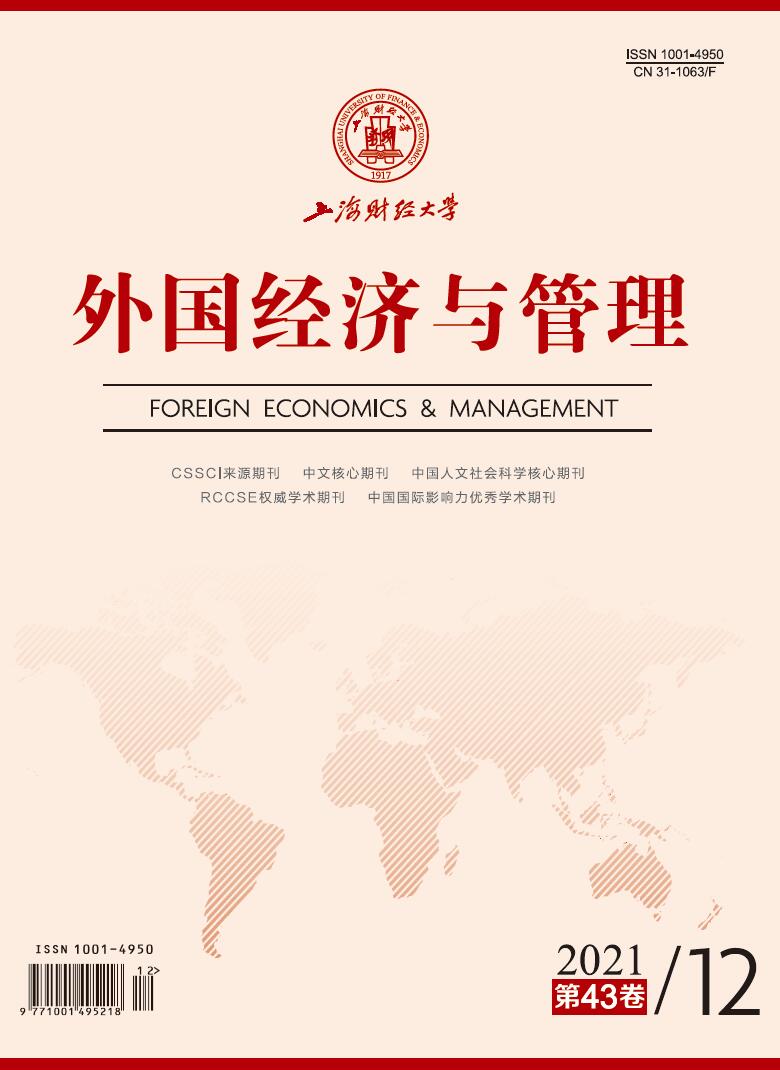本文基于行为金融学的视角,研究了有限套利对分析师盈利预测精度的影响,并考察了有限套利与投资者情绪的交互效应以及不同分析师群体受上述效应影响的差异。研究发现:首先,上市公司在市场中受到的套利限制会显著降低分析师的盈利预测精度,而且这种影响并不能由理性因素(机构持股、佣金关系、声誉机制等利益冲突因素)和情绪因素所解释。其次,分析师套利限制不仅独立地影响分析师的预测精度,而且还会加剧情绪因素的影响,进一步降低分析师盈利预测精度。最后,无论是明星分析师、大券商分析师还是独立性较强的分析师均无法显著降低套利限制的影响,但大券商分析师则可以降低套利限制对情绪因素的加剧效应。本文的研究结论有助于从有限理性和有限套利相结合的角度去解释分析师盈利预测偏差的形成过程,拓宽了关于分析师盈利预测精度影响因素的认识。
有限套利、投资者情绪与分析师盈利预测精度
摘要
参考文献
1 曹胜, 朱红军. 王婆贩瓜: 券商自营业务与分析师乐观性[J]. 管理世界,2011, (7): 20-30.
2 褚剑, 秦璇, 方军雄. 中国式融资融券制度安排与分析师盈利预测乐观偏差[J]. 管理世界,2019, 35(1): 151-166,228. DOI:10.3969/j.issn.1002-5502.2019.01.010
3 黄俊, 黄超, 位豪强, 等. 卖空机制提高了分析师盈余预测质量吗——基于融资融券制度的经验证据[J]. 南开管理评论,2018, 21(2): 135-148.
4 李丹, 袁淳, 廖冠民. 卖空机制与分析师乐观性偏差——基于双重差分模型的检验[J]. 会计研究,2016, (9): 25-31. DOI:10.3969/j.issn.1003-2886.2016.09.004
5 伍燕然, 江婕, 谢楠, 等. 公司治理、信息披露、投资者情绪与分析师盈利预测偏差[J]. 世界经济,2016, 39(2): 100-119.
6 伍燕然, 潘可, 胡松明, 等. 行业分析师盈利预测偏差的新解释[J]. 经济研究,2012, 47(4): 149-160.
7 许年行, 江轩宇, 伊志宏, 等. 分析师利益冲突、乐观偏差与股价崩盘风险[J]. 经济研究,2012, 47(7): 127-140.
8 叶建华, 周铭山. 有限套利能否解释A股市场资产增长异象[J]. 南开管理评论,2013, 16(1): 41-48,63. DOI:10.3969/j.issn.1008-3448.2013.01.006
9 尹玉刚, 谭滨, 陈威. 套利非对称性、误定价与股票特质波动[J]. 经济学(季刊),2018, 17(3): 1235-1258.
10 Aharoni G, Einhorn E, Zeng Q. Under weighting of private information by top analysts[J]. Journal of Accounting Research,2017, 55(3): 551-590. DOI:10.1111/1475-679X.12152
11 Ang A, Hodrick R J, Xing Y H, et al. The cross-section of volatility and expected returns[J]. The Journal of Finance,2006, 61(1): 259-299. DOI:10.1111/j.1540-6261.2006.00836.x
12 Baker M, Wurgler J. Investor sentiment and the cross-section of stock returns[J]. The Journal of Finance,2006, 61(4): 1645-1680. DOI:10.1111/j.1540-6261.2006.00885.x
13 Barroso P, Detzel A. Do limits to arbitrage explain the benefits of volatility-managed portfolios?[J]. Journal of Financial Economics,2021, 140(3): 744-767. DOI:10.1016/j.jfineco.2021.02.009
14 Cheng Q, Du F, Wang X, et al. Seeing is believing: Analysts’ corporate site visits[J]. Review of Accounting Studies,2016, 21(4): 1245-1286. DOI:10.1007/s11142-016-9368-9
15 Cuculiza C, Antoniou C, Kumar A, et al. Terrorist attacks, analyst sentiment, and earnings forecasts[J]. Management Science,2021, 67(4): 2579-2608. DOI:10.1287/mnsc.2019.3575
16 Dong R, Fisman R, Wang Y X, et al. Air pollution, affect, and forecasting bias: Evidence from Chinese financial analysts[J]. Journal of Financial Economics,2021, 139(3): 971-984. DOI:10.1016/j.jfineco.2019.12.004
17 Firth M, Lin C, Liu P, et al. The client is king: Do mutual fund relationships bias analyst recommendations?[J]. Journal of Accounting Research,2013, 51(1): 165-200. DOI:10.1111/j.1475-679X.2012.00469.x
19 Guo L, Li F W, John Wei K C. Security analysts and capital market anomalies[J]. Journal of Financial Economics,2020, 137(1): 204-230. DOI:10.1016/j.jfineco.2020.01.002
20 Hameed A, Morck R, Shen J F, et al. Information, analysts, and stock return comovement[J]. Review of Financial Studies,2015, 28(11): 3153-3187. DOI:10.1093/rfs/hhv042
21 Han B, Kong D M, Liu S S. Do analysts gain an informational advantage by visiting listed companies?[J]. Contemporary Accounting Research,2018, 35(4): 1843-1867. DOI:10.1111/1911-3846.12363
22 Hirshleifer D, Levi Y, Lourie B, et al. Decision fatigue and heuristic analyst forecasts[J]. Journal of Financial Economics,2019, 133(1): 83-98. DOI:10.1016/j.jfineco.2019.01.005
23 Hribar P, McInnis J. Investor sentiment and analysts’ earnings forecast errors[J]. Management Science,2012, 58(2): 293-307. DOI:10.1287/mnsc.1110.1356
24 Kerl A, Ohlert M. Star-analysts’ forecast accuracy and the role of corporate governance[J]. The Journal of Financial Research,2015, 38(1): 93-120. DOI:10.1111/jfir.12053
25 Kong D M, Lin Z Y, Wang Y N, et al. Natural disasters and analysts’ earnings forecasts[J]. Journal of Corporate Finance,2021, 66: 101860. DOI:10.1016/j.jcorpfin.2020.101860
26 Lam F Y E C, Wei K C J. Limits-to-arbitrage, investment frictions, and the asset growth anomaly[J]. Journal of Financial Economics,2011, 102(1): 127-149. DOI:10.1016/j.jfineco.2011.03.024
27 Li F F, Lin C, Lin T C. Salient anchor and analyst recommendation downgrade[J]. Journal of Corporate Finance,2021, 69: 102033. DOI:10.1016/j.jcorpfin.2021.102033
28 Ljungqvist A, Marston F, Wilhelm W J. Competing for securities underwriting mandates: Banking relationships and analyst recommendations[J]. The Journal of Finance,2006, 61(1): 301-340. DOI:10.1111/j.1540-6261.2006.00837.x
29 Malloy C J. The geography of equity analysis[J]. The Journal of Finance,2005, 60(2): 719-755. DOI:10.1111/j.1540-6261.2005.00744.x
30 Malmendier U, Shanthikumar D. Do security analysts speak in two tongues?[J]. The Review of Financial Studies,2014, 27(5): 1287-1322. DOI:10.1093/rfs/hhu009
31 Mashruwala C, Rajgopal S, Shevlin T. Why is the accrual anomaly not arbitraged away? The role of idiosyncratic risk and transaction costs[J]. Journal of Accounting and Economics,2006, 42(1-2): 3-33. DOI:10.1016/j.jacceco.2006.04.004
32 Mendel B, Shleifer A. Chasing noise[J]. Journal of Financial Economics,2012, 104(2): 303-320. DOI:10.1016/j.jfineco.2011.02.018
33 Mola S, Guidolin M. Affiliated mutual funds and analyst optimism[J]. Journal of Financial Economics,2009, 93(1): 108-137. DOI:10.1016/j.jfineco.2008.06.006
34 Sedor L M. An explanation for unintentional optimism in analysts’ earnings forecasts[J]. The Accounting Review,2002, 77(4): 731-753. DOI:10.2308/accr.2002.77.4.731
35 So E C. A new approach to predicting analyst forecast errors: Do investors overweight analyst forecasts[J]. Journal of Financial Economics,2013, 108(3): 615-640. DOI:10.1016/j.jfineco.2013.02.002
36 Wu Y R, Liu T T, Han L Y, et al. Optimistic bias of analysts’ earnings forecasts: Does investor sentiment matter in China?[J]. Pacific-Basin Finance Journal,2018, 49: 147-163. DOI:10.1016/j.pacfin.2018.04.010
引用本文
张超, 伍燕然, 苏凇, 等. 有限套利、投资者情绪与分析师盈利预测精度[J]. 外国经济与管理, 2021, 43(12): 118-134.
导出参考文献,格式为:





 11944
11944  10275
10275

